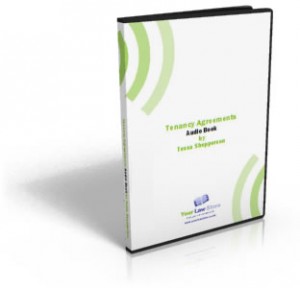
The problem
Although landlords have to comply with a lot of regulations, there are at present no regulations regarding landlords themselves.
They do not have to register with any national organisation for example (other than with the Inland Revenue for tax purposes) and there are no national standards which they are required to meet as a condition of renting out property to tenants.
As a result, although most landlords are fine (and some are outstanding) there are many landlords whose service can best be described as unsatisfactory (and their tenants no doubt frequently use other words!).
If you are a good landlord how can you shout this to the world? One way is by accreditation.
Accreditation – the answer?
 There are many accreditation schemes. You can find out which one applies in your area via the Accreditation Network UK website which has a list of all accreditation schemes registerd with them.
There are many accreditation schemes. You can find out which one applies in your area via the Accreditation Network UK website which has a list of all accreditation schemes registerd with them.
The biggest scheme of all is the one which originated in London. It used to be called the London Landlord Accreditation Scheme, but as it has been joined by schemes in other areas, it is now called the UK Landlord Accreditation Partnership .
What is an accreditation scheme?
So what are accreditation schemes and how do they work? As their aim is to ensure that their members provide decent properties and comply with legal standards, all of them have a code of conduct which landlords need to sign up to, and provide training.
Some schemes accredit the property being let but most now accredit the landlord. On the basis that if the landlord complies with the accreditation standards his properties will too. This is the model used by the London scheme which has been so successful.
Who runs the schemes?
Generally accreditation schemes are set up and run by one or more of the following:
- Local Authorities – they are often the prime movers, and the schemes can help them fulful their statutory duties. They are also often able to provide staff to run the schemes, premises for meetings and so on
- Local colleges and universities – student tenancies often form a big part of the private rented sector in the larger towns and cities. Accreditation schemes are one way that colleges and universities can assist their students find accommodation which is of a proper standard. ANUK itself is (as stated on its website) administered by Unipol which is a national student housing charity.
- Local Landlord Associations – one of the reasons landlord associations are set up is to improve standards. Accreditations schemes are a good way of doing this. It is also a way of helping members, as accreditation schemes generally carry benefits for their members.
Benefits of accreditation schemes
Probably the most important benefit is the training which landlords have to undergo to become accredited, which most find extremely helpful. Generally this takes the form of a days training course.
Accredited landlords will also usually get a manual and regular newsletters and updates to keep them informed of changes in housing law and practice. There will also be a website with information, services and support provided by the scheme for its members.
In many areas HMO landlords will pay a lower license fee if their HMOs need to be licensed, and there may be grants available to accredited landlords. Sometimes also they will be able to claim discounts with insurance companies, banks and suppliers.
There are also marketing opportunities, most particularly (for the schemes with colleges and universities) with student accommodation offices, who will normally refuse to accept any landlords who are not accredited.
Continuing professional development
Most of the schemes, in particular the London one, will require landlords not only to undertake training at when they first join, but also undergo regular updating training. This is known as continuing professional development (CPD).
CPD can be obtained by attending the schemes’ own training courses, but also by undergoing training with other approved organisations.
 Three hours CPD with my Tenancy Agreements Audiobook
Three hours CPD with my Tenancy Agreements Audiobook
In this context, I am happy to announce that my audiobook, The Tenancy Agreements Audiobook, has been approved by the UK Landlord Accreditation Partnership for CPD.
Users of the audiobook will be able to gain three hours CPD after answering a test and getting 20 out of the 30 questions right.
The audiobook is due to be launched tomorrow. To receive formal notification please sign up to the special mailing list on the page you will find >> here.
My issue with schemes of this kind is that it is only ever the good guys who sign up in return for an uncertain benefit. I am both a landlord and a tenant in different towns as well as a personal homeowner. As a tenant I have never come across an accreditation scheme and been pointed towards that landlord rather than a non-accredited one. I have no idea whether my current landlord (who is a first class one) is, or is not accredited. Why would I care?
Hi Rex You are quite right in saying that generally it is the better landlords that join. I think the schemes are particularly important for student landlords as being accredited is generally a condition of being allowed to advertise in the student accommodation office.
I think accreditation is always good, but unfortunately like mentioned previously – only the good ones will fall for this….
I think in an ideal world this will work,but as we know an ideal world does not exist.
This would be an excellent innovation but little incentive for Landlords at present as plenty of demand from tenants. Could it help with lowering Landlords insurance premiums also ?
As you have never come accross an accreditation Scheme, so let me tell you a bit about LLAS (TA UKLAP)
The London Landlord Accreditation Scheme (LLAS). LLAS is a pan London scheme, launched in 2004, the scheme is an initiative which help to raise standards and recognise good practices in the private rented market, The LLAS provide landlords and agents with information and professional development opportunities to allow them to operate a successful businesses, provide their tenants with safe and high quality accommodation and reduce the need for intervention from local authorities and the Scheme also addresses the shortfalls in property standards and management, landlord and tenancy issues.
Clearly I think accreditation is a good idea and believe that where those who are willing to engage with local authorities take little of local authorities’ time and attention and therefore enforcement can be focused on the cases most deserving of it. Also the fundamental principle of approving the landlord seems right as Local Housing Authorities will never get enough resources to inspect 2.5 million private rented houses. One landlord who is informed and willing to cooperate will make sure all his properties are to a suitable standard. Also an inspection regime is both confrontational and totally ignores the management side of the landlord tenant relationship. This side is surely as important as the property standards. I believe that the majority of landlord are not unwilling to do things right, they simply don’t know what they should be doing. This is where having training and CPD as a mandatory part of the scheme gradually begins to address this. The LLAS/UKLAP Scheme has “real” requirements in terms of attending the training and CPD, a code of Conduct, and a Fit & Proper person requirement. Private landlord accreditation scheme may become increasingly important going forward considering the Government’s plans not to create any burdensome red tape and bureaucracy within the private rented sector. So as a Landlord, I would recommend that you become accredited.